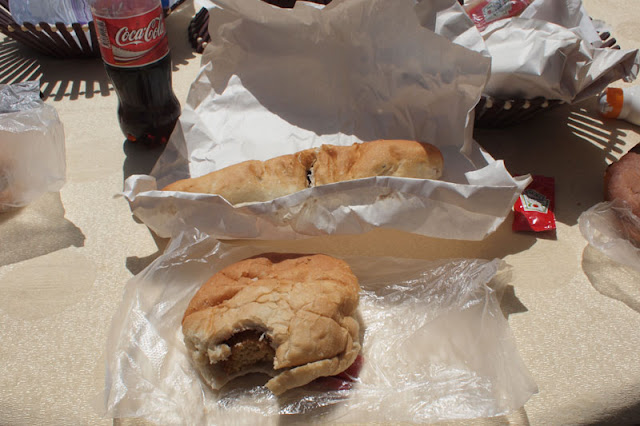During the period i spent in khartoum before the rest of the group arrived, it was very important for me to find a base where we can do our presentations and meet local artists. Unfortunately, my plans for having such a place didn't quietly work due to our busy schedule in khartoum. But if we had a place close to that, i would say it was Goethe institute.
When I first arrived in khartoum, I thought about contacting one of the foreign cultural centers in there, the French, the British or the German. After asking around a bit and talking to some friends I decided to start with Goethe. A friend of mine has started a small project teaching young sudanese how to film and edit and was supported and housed by them.
He, among others encouraged me to contact a young German lady, running the institute in khartoum. Her name was lilli. She spoke Arabic in Egyptian dialect and was very welcoming and nice. She offered me the small library and all her technical staff and stuff. For that, I am truly thankful.
Goethe institute in khartoum has very different goals than in Oslo. It's not just about helping students who are in their way to Germany to study, learning the language and earning the right certifications.
Goethe has widely varied forms of presence and activities. the first institutes in Africa, were opened in 1961 in Togo (Lomé), Cameroon (Yaoundé) and Ghana (Accra); the most recent institute opened in 1995 in South African Johannesburg Along with the classical tasks of theGoethe-Institut – promoting the German language and a contemporary image of Germany, as well as supporting international cultural cooperation – the work of the Goethe-Institute in Africa aims among other things at providing aesthetic and discursive inputs to the process of modernisation and development in the region. This also includes encouraging innerAfrican exchange and the development of pan-African projects that aim at an artistic reflection of the current political, economic and social problems on the continent.
This aim is to be questioned in my opinion. In Sudan it felt like Goethe was motivating the recent separation of the country into two, south and north even further. We learned during our time in khartoum that Goethe institute in the two capitals, juba and khartoum, belongs to two different regional administrations. While the new southern country belongs to sub-sahara, the northern belongs to north Africa and the middle east. The administrations has different politics and goals and that will drift apart the two cities that not long time ago used to belong to the same country.
This is not strange though, if we look at the western funding for culture in Africa generally. It's very easy to divide Africa into different regions depending on the country or the insituation the funds the cultural work in those regions. The claims that Goethe have in motivating African countries to work together might be true when those countries are funded from the same administration.
However, as an African i can't really complain if culture is my industry. For, whatever those institutions are getting out of Africa for the money they pay supporting cultural development, still it was in Goethe in khartoum i had my first solo show. And it was at the French cultural center i used to hold the hands of my girlfriend. It was at the British council i read about art in English and learned more about both, English and art.
The foreign cultural centers were and are a very important part of the cultural socialization for all the intellectuals in African countries.
I might as well mention that economic and touristic intermeshing between African states and German-speaking countries and the career and business advantages of knowing German stemming from this are a further motivation that is wide-spread. Germany as a place to study is becoming increasingly attractive to academics.
For roughly a year now, people who require a visa so that they can come and live with their spouses in Germany must demonstrate their knowledge of German by taking an Goethe-Institut examination. These people as well begin to learn German before they leave their home country.
That and much more you will find in Goethe in khartoum. While we were there Goethe hosted a forum called Diwan, where you could have poetry nights and open forums about almost everything within the cultural frame. The institute also hosted and supported financially Sudan Film Factory. A place where sudanese youth could learn about documentary film making and show their short movies to each other and to a small local audience.




































